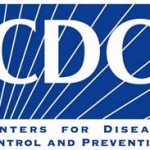The U.S. Food & Drug Administration (FDA) has alerted the public that H-E-B stores in the state of Texas are recalling two single-serving soup products. These soups were made in-house from vegetable ingredients that are part of a massive recall issued on October 19th by Mann Packing, headquartered in Salinas, California. These vegetables may have been contaminated with Listeria monocytogenes bacteria, which can cause a very dangerous form of food poisoning. The two single-serving soups affected by the recall are “H-E-B ASIAN NOODLE CUP BEEF” (UPC code 26010400000) and “H-E-B ASIAN NOODLE CUP CHICKEN” (UPC code 26010100000). Because of the food poisoning risk, anyone who has bought one of these soups should either dispose of it properly or return it to its place of purchase for a … [Read more...]
FDA Has Tips for Eating Outdoors and Handling Food Safely
This is Memorial Day weekend, the unofficial beginning of the summer season. Many people will be barbecuing and having picnics outdoors. These events are opportunities for foodborne illness, especially since the warmer weather months can increase the chance of food poisoning. So the FDA is offering tips for eating outdoors and handling food safely. First, pack and transport the food safely. When perishable foods aren't in the refrigerator, they are at greater risk for bacterial contamination. Cold food should be kept cold. Use a cooler with ice or frozen gel packs and make sure that the temperature in the cooler is at 40*F or below to prevent bacterial growth. You can pack meat, poultry, and seafood while still frozen so they stay colder longer. Organize the cooler contents. Put … [Read more...]
CDC Releases Data on Foodborne Illnesses and CIDTs 2013 – 2016
In the latest issue of CDC's Morbidity and Mortality Weekly Report, a report studied the incidence and trends of infections of foodborne pathogens from 2013 - 2016. The report also looked at the effect of the increasing use of culture-independent diagnostic tests (CIDTs) on pathogen surveillance. Overall, the 2016 incidence of confirmed Campylobacter infections was lower in the United States, but incidences of confirmed Shiga toxin-producing E. coli (STEC), Yersinia, and Cryptosporidium infections were higher. But the report states that culture-independent diagnostics tests (CIDTs) are complicating this data, because testing for pathogens may be occurring more frequently using this method. In 2016, FoodNet, the CDC's Foodborne Diseases Active Surveillance Network, identified … [Read more...]
People Work Sick, Even When They Should Stay Home
A poll of working adults conducted by National Public Radio (NPR), the Robert Wood Johnson Foundation, and Harvard T.H. Chan School of public health has found that many people work when they are sick, even when they should stay home. This is especially problematic in the food service industry, since sick food handlers can cause serious outbreaks that can sicken many people. In addition, many working adults say that their current job adversely affects their health. And almost half of all working adults give their workplace only fair or poor ratings in efforts to reduce stress. Workers in restaurant jobs say their job has a bad impact on their stress level. In fact, 54% of restaurant workers, by far the most of any sector, say that their current job is bad for their stress … [Read more...]
CDC Announces Awards to Help Fight Infectious Disease
The Centers for Disease Control and Prevention (CDC) announced this week that they are awarding almost $110 million to help states strengthen their ability to track and respond to infectious diseases. Increases in funding are going to foodborne-disease prevention and advanced molecular detection. The funding is allocated through the Epidemiology and Laboratory Capacity for Infectious Diseases Cooperative Agreement (ELC). Fifty-one million dollars is provided through the Affordable Care Act's Prevention and Public Health Fund. Infectious disease surveillance and outbreak response, public health labs, health information systems, and efforts to combat foodborne disease, zoonotic disease, and healthcare-associated infections are supported by this money. The CDC funds all 50 state health … [Read more...]
The Cost of Foodborne Illness Varies Dramatically by State
Foodborne illness costs Americans billions each year, but the cost varies dramatically by state, according to a new analysis by Robert Scharff an economist and scientist at the Ohio Agricultural Research and Development Center at Ohio State University. Having previously published estimates of the national cost of foodborne illness, Scharff noticed the disparity and looked into further with this study. What he found could help state governments prioritize their resources. Scharff found that the average cost of a case of fooborne illness varies from state to state -$1,666 in Ohio compared with $2,443 in Maryland. But he also found that that the bacterial, viral and parasitic agents that make people sick vary by state, too. Vibrio is a bacteria frequently associated with raw seafood. … [Read more...]
USDA Finally Finalizes Mechanically Tenderized Beef Label Rule
The USDA has finally finalized labeling requirements for mechanically tenderized beef. That product is pierced with needles or small blades to tenderize, which introduces bacteria into the interior. When the beef is cooked less than well done, people who eat it can get sick because bacteria survive at temperatures less than 160°F. The rule will go into effect in May 2016, one year from the date of the rule's publication in the Federal Register. USDA Deputy Under Secretary for Food Safety Al Almanza said in a statement, "labeling mechanically tenderized beef products and including cooking instructions on the package are important steps in helping consumers to safely prepare these products. This common sense change will lead to safer meals and fewer foodborne illnesses." There have been … [Read more...]
Minnesota E. coli Lawyer Lauds State Health Department
Minnesota’s food poisoning investigators had a busy year with outbreaks in 2014, successfully tracing the cause of three separate clusters of E. coli hospitalizations and two waves of Salmonella infections. The efforts undoubtedly protected more people from contracting pathogen-related illnesses and gave victims of the solved outbreaks a chance to hold the purveyors accountable. A review by Food Poisoning Bulletin shows that four of the outbreaks had implications beyond the state’s borders, including findings of E. coli O157:H7 in celery that came from the Salinas Valley; E. coli O111 in cabbage purchased by units of a national restaurant chain and Salmonella Enteritidis in a frozen chicken breast product mass-produced in Illinois for the American retail market. “The Minnesota … [Read more...]
Cost of US Foodborne Illnesses: $15 Billion Per Year
The Economic Research Service of the USDA has collected cost estimates of foodborne illness for the major pathogens that strike people in the U.S. That cost is estimated to be $15,600,000,000.00 every year, in medical care, lost wages and productivity, and premature deaths. That's billion with a "b". The research looked at 15 pathogens that account for more than 95% of illnesses and deaths in this country. The estimates build on Centers for Disease Control and Prevention estimates of disease rates, medical and epidemiological literature, and peer-reviewed synthesis of data on medical costs. According to the data, Salmonella infections cost our economy the most money. Yearly cases of salmonellosis cost $3,666,600,031.00, sickening more than a million people and hospitalizing almost … [Read more...]














